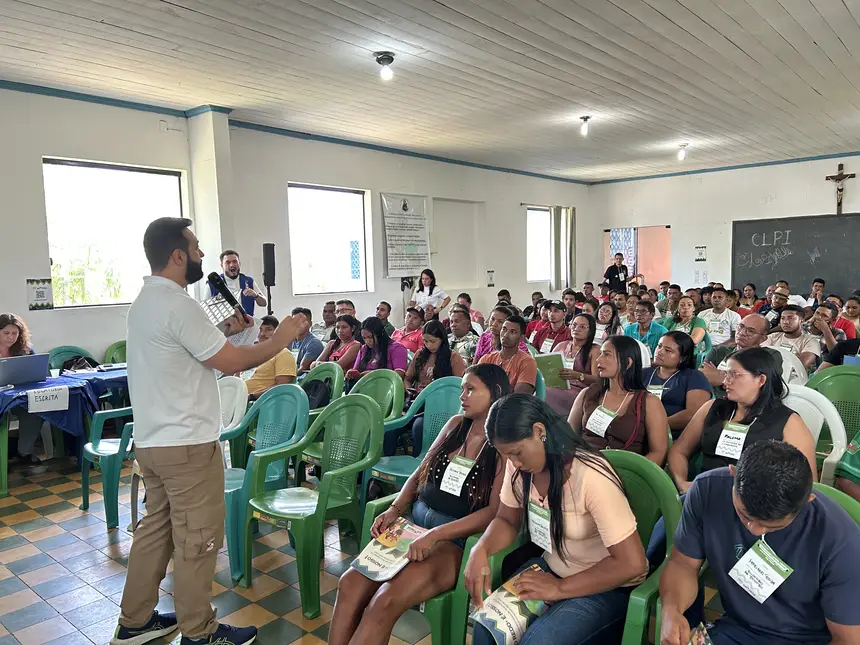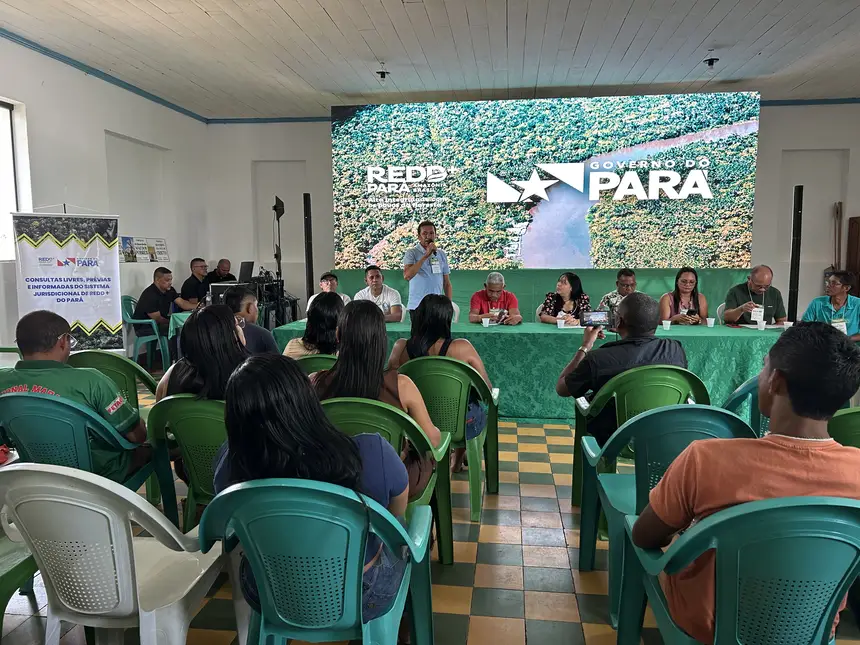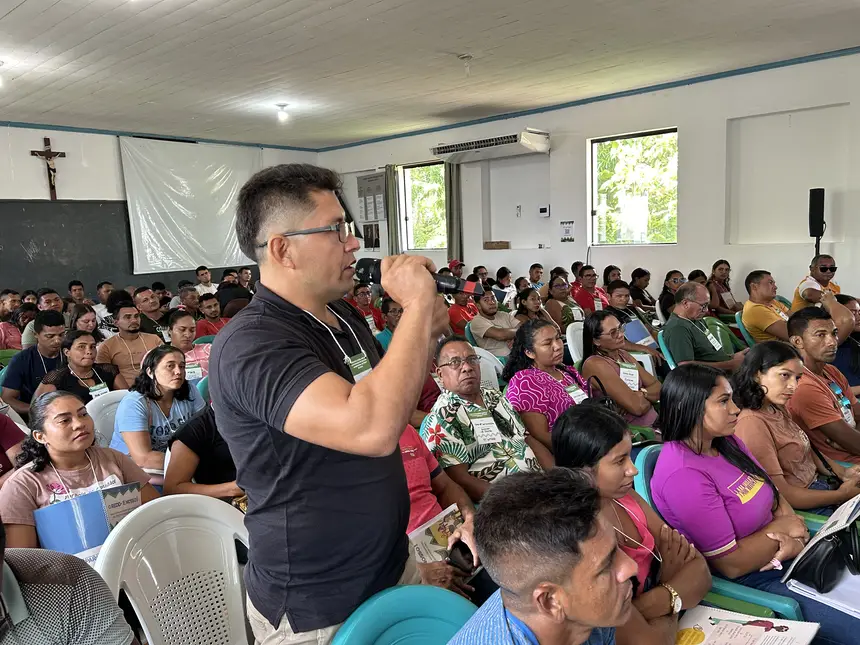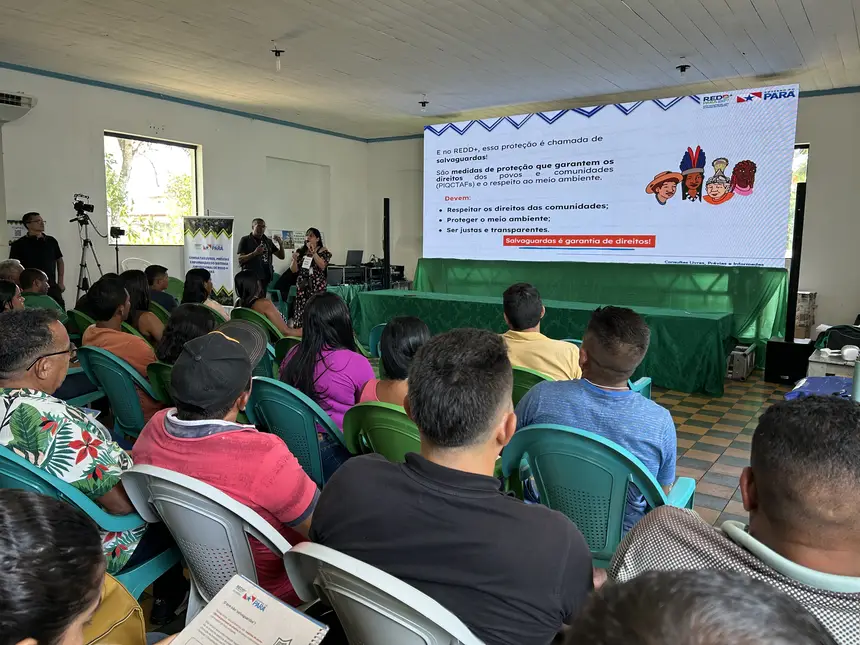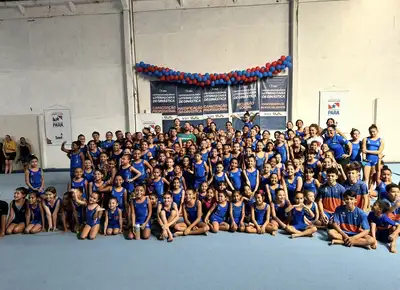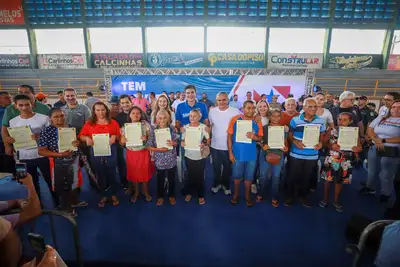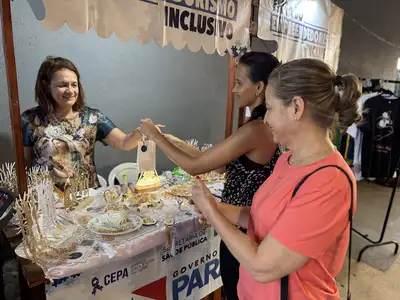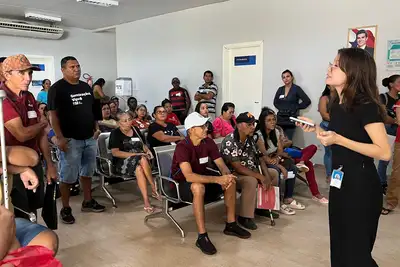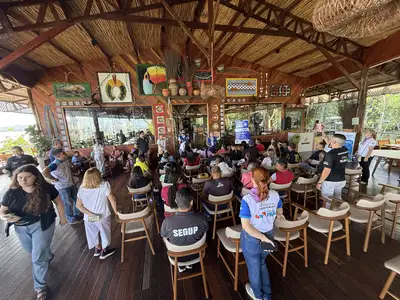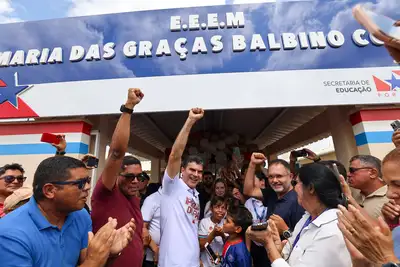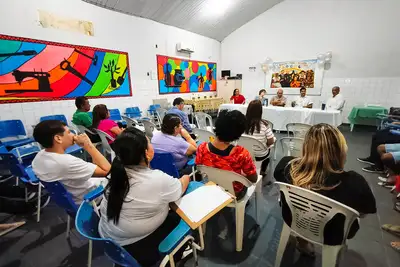Government of Pará conducts new consultation with quilombolas for the construction of the REDD+ Jurisdictional System
In Gurupá, in Marajó, the consultation involves quilombola leaders in the SJREDD+ process, aiming at environmental preservation and generating benefits for traditional communities
The Government of Pará, through the State Secretariat for the Environment, Climate and Sustainability (Semas), initiated, on Tuesday (26), another stage of the Free, Prior and Informed Consultation (CLPI) in quilombola communities of the Marajó Archipelago. This action, considered the largest consultation process with Indigenous Peoples, Quilombolas, Traditional Communities, and Family Farmers (PIQCTAFs) ever carried out by the State, is part of the construction of the REDD+ Jurisdictional System (SJREDD+), a public policy aimed at reducing deforestation, prioritizing benefits for the environment and traditional populations and communities.
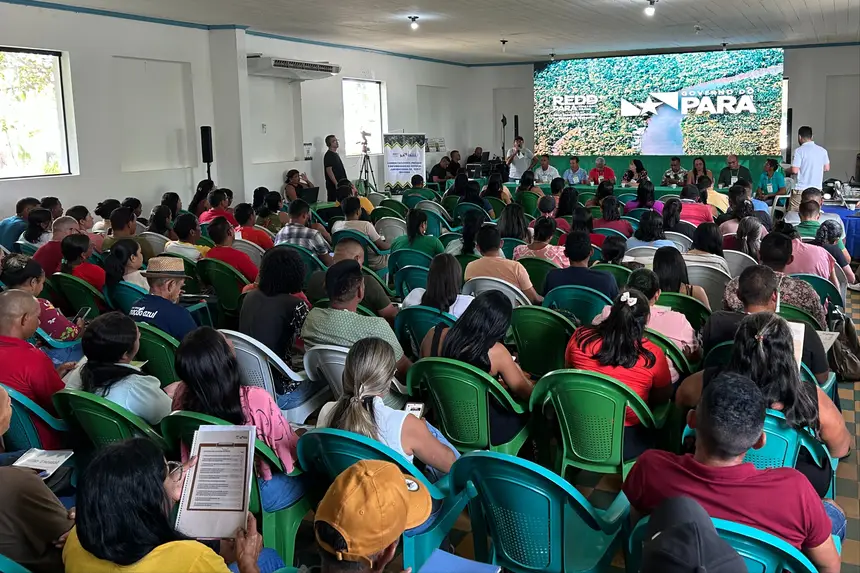
The current stage takes place from August 26 to 29, in the municipality of Gurupá, and follows a methodology developed by quilombola leaders and state agencies. The activities include presentations on the implementation process of REDD+ in Pará, the State System of Safeguard Information (SISREDD+), legal aspects of the REDD+ Jurisdictional System, and mechanisms for accessing and sharing benefits. The goal of the system is to ensure the participation of PIQCTAFs in the construction of the policy.
Renata Nobre, deputy secretary of Water and Climate Management, emphasizes that "the direct listening of communities is essential for the REDD+ Jurisdictional System to be legitimate and represent the interests of those who live in and protect the forest. Our goal is to build a transparent public policy that strengthens traditional territories, reconciles environmental preservation, and improves the quality of life of local populations."
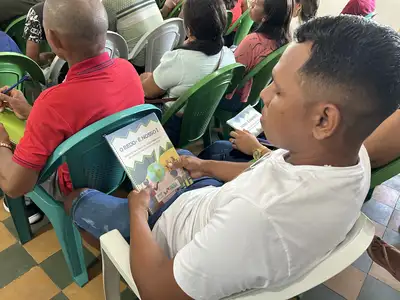
Community Participation - The program also includes informative and consultative participation led by leaders, group activities, debates, listening spaces, and community meetings, aimed at building the REDD+ Jurisdictional System.
Cristóvão Fonseca Muniz, representative of the Nossa Senhora de Nazaré community of Quilombo Jocojó, highlighted the importance of traditional communities being heard and participating in the construction of public policies.
"It is very important for us, quilombolas, to be consulted regarding such a grand project as this, which involves policies implemented by the state government. Today, the government deserves congratulations for listening to us. It is essential for us to be here listening to the State and also proposing what we consider best for our quilombola territories, for traditional communities, and for riverside and indigenous peoples. Our wish is that these public policies actually reach our communities and our families, who need them so much," said Cristóvão Muniz.
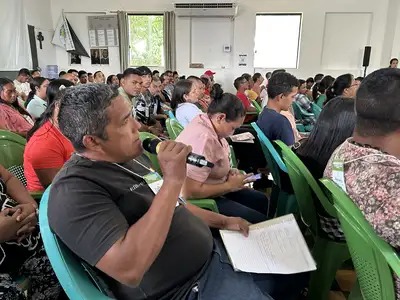
Right to Voice - Suely Pombo, president of the Association of Remnants of Quilombos of the Communities of the Municipality of Gurupá (ARQMG), emphasized that preservation is already part of the reality of quilombola and riverside communities, and that the Free, Prior and Informed Consultation strengthens their rights and guarantees a voice in environmental policies.
"This project involves not only our community and our territory but has a global impact, as it seeks to reduce greenhouse gas emissions and brings greater visibility to the territories and environmental preservation. This preservation is already part of our reality. We have always taken care of the forest. But with encouragement, technical support, and recognition of our rights, we can work even better. Many times we do not have financial resources to implement actions as they should be done in our territories. Therefore, we thank the state team, which stepped out of its comfort zone and came to contribute and listen," emphasized Suely Pombo.
In addition to Semas, the activities are supported by the State Secretariat for Racial Equality and Human Rights (Seirdh); the State Coordination of Associations of Remnants of Quilombo Communities of Pará (Malungu); ARQMG; the Municipal Secretariat for the Environment of Gurupá; and local community leaders.
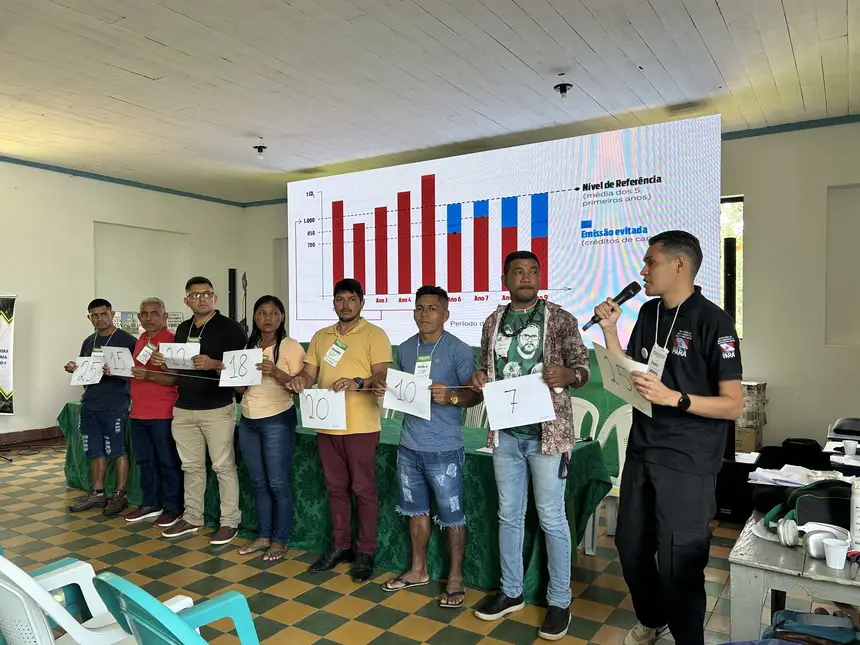
Bioeconomy - The CLPI in the Pará territory is provided in accordance with Convention 169 of the International Labour Organization (ILO), which guarantees traditional peoples and communities the right to free, prior, and informed consultation on measures that may interfere with their ways of life and territories.
"We want to congratulate Semas, which is respecting a right provided for in the ILO, ensuring prior consultation with communities for the development of this project. This initiative opens doors for us to discuss the bioeconomy of our great forest and contributes to the sustainable development of the State, keeping our forest alive," emphasized Agenor Pombo, quilombola representative from Gurupá.
Text: Mário Gouveia - Ascom/Semas


